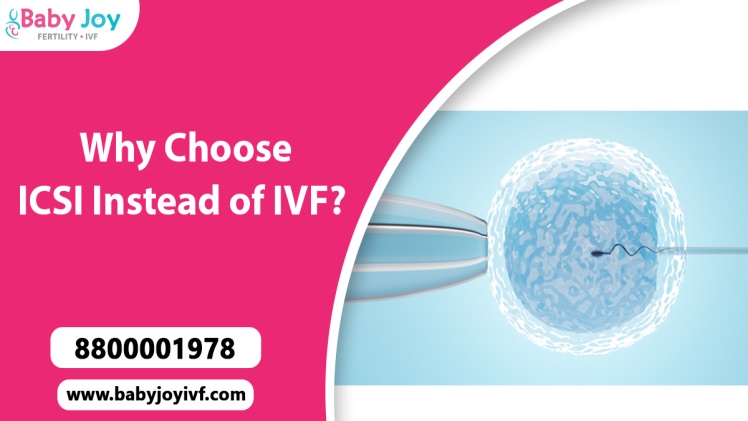Today, people generally have this misconception that the problem of infertility is only in women, but this belief is wrong, problems like infertility also occur in men, in about 40 to 50% cases, the problem of infertility is also found in men. As the problem occurs in any of the partners, they also have problems in becoming parents, but today in the era of technology, IVF and ICSI are available through the best IVF center in Delhi to solve the problem of infertility. As both the treatments are provided with high technology
What are IVF and ICSI?
IVF: – In vitro fertilization is commonly known as IVF. It is a boon for a person or couple suffering from infertility.
During IVF, an embryo is created by fertilizing a woman’s egg and a man’s sperm in a laboratory at an IVF center. After the embryo is prepared, it is placed in the woman’s uterus. Around 8 million babies are born through IVF every year worldwide.
A baby born through IVF treatment is called a test tube baby. IVF is a long and complicated process during which you need to take care of many things.
ICSI: – Intracytoplasmic sperm injection is colloquially called ICSI. When there is a problem in fertilization due to any reason, doctors suggest this treatment.
During ICSI, the fertility doctor individually selects healthy sperm from a semen sample with the help of an advanced micromanipulation station. That sperm is then injected into the center of an egg (the cytoplasm).
After that, the fertilized egg is transferred to the uterus of the female partner. Doctors at IVF Center Delhi use ICSI treatment to treat men who have zero or low sperm count.
Usually the immature sperms already retrieved from the testicles are not motile, so the egg is fertilized with the help of ICSI.
Why Choose ICSI Instead of IVF?
Male infertility issues: ICSI is specially designed for couples struggling with male infertility issues. This treatment is provided by the IVF center in Delhi. In IVF, the sperm is simply mixed with the egg in a Petri dish and left to fertilize on its own. In ICSI, a single sperm is injected directly into the egg, increasing the chances of fertilization even if the sperm count or motility is low.
Previous IVF failures: Couples who have undergone multiple IVF cycles with little or no success may find that ICSI offers a higher chance of success. By directly injecting the sperm into the egg, ICSI bypasses some of the issues that can prevent fertilization in traditional IVF cycles.
Abnormal sperm morphology: Even if a man’s sperm count and motility are normal, if the sperm has an abnormal shape, it may struggle to penetrate the egg during IVF. ICSI can overcome this problem by injecting the sperm directly into the egg.
Genetic issues: In some cases, genetic abnormalities in the male partner’s sperm can make conception difficult. ICSI can help to overcome this problem by directly selecting the healthiest sperm for injection into the egg.
Frozen sperm: In some cases, couples may have frozen sperm available from previous cycles or from a sperm donor. ICSI can be used with frozen sperm, which may increase the chances of success in these cases.
Female infertility issues: IVF may be a better option for couples struggling with female infertility issues, such as blocked fallopian tubes, endometriosis, or other conditions that affect egg quality or quantity.
Low sperm count: While ICSI is designed for couples with male infertility issues, it may not be effective if the man has a very low sperm count or no viable sperm. In this case IVF can be a better option.
Cost of treatment: ICSI is generally more expensive than traditional IVF, so cost may be a deciding factor for some couples. If any couple wants to know IVF cost in Delhi then they can contact IVF center

